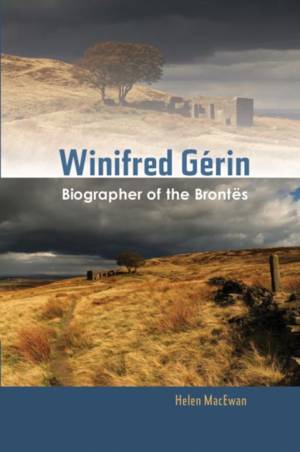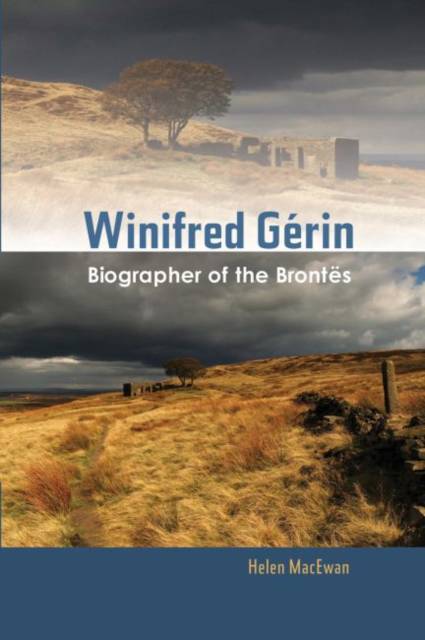
- Afhalen na 1 uur in een winkel met voorraad
- Gratis thuislevering in België vanaf € 30
- Ruim aanbod met 7 miljoen producten
- Afhalen na 1 uur in een winkel met voorraad
- Gratis thuislevering in België vanaf € 30
- Ruim aanbod met 7 miljoen producten
Zoeken
Omschrijving
The biographer Winifred Gerin (1901-81), who wrote the lives of all four Bronte siblings, stumbled on her literary vocation on a visit to Haworth, after a difficult decade following the death of her first husband. On the same visit she met her second husband, a Bronte enthusiast twenty years her junior. Together they turned their backs on London to live within sight of the Parsonage, Gerin believing that full understanding of the Brontes required total immersion in their environment. Gerin's childhood and youth, like the Brontes', was characterised by a cultured home and intense imaginative life shared with her sister and two brothers, and by family tragedies (the loss of two siblings in early life). Strong cultural influences formed the children's imagination: polyglot parents, French history, the Crystal Palace, Old Vic productions. Winifred's years at Newnham College, Cambridge were enlivened by eccentric characters such as the legendary lecturer Quiller-Couch (Q'), Lytton Strachey's sister Pernel and Bloomsbury's favourite philosopher, G.E. Moore. Her happy life in Paris with her Belgian cellist husband, Eugene Gerin, was brought to an abrupt end by the Second World War, in which the couple had many adventures: fleeing occupied Belgium, saving Jews in Nice in Vichy France, escaping through Spain and Portugal to England, where they did secret war work for Political Intelligence near Bletchley. After Eugene's death in 1945 Winifred coped with bereavement through poetry and playwriting until discovering her true literary metier on the trip to Haworth. She also wrote about Elizabeth Gaskell, Anne Thackeray Ritchie and Fanny Burney. The book is based on her letters and on her unpublished memoir.
Specificaties
Betrokkenen
- Auteur(s):
- Uitgeverij:
Inhoud
- Aantal bladzijden:
- 256
- Taal:
- Engels
Eigenschappen
- Productcode (EAN):
- 9781845197438
- Verschijningsdatum:
- 22/10/2015
- Uitvoering:
- Paperback
- Formaat:
- Trade paperback (VS)
- Afmetingen:
- 150 mm x 226 mm
- Gewicht:
- 430 g

Alleen bij Standaard Boekhandel
+ 69 punten op je klantenkaart van Standaard Boekhandel
Beoordelingen
We publiceren alleen reviews die voldoen aan de voorwaarden voor reviews. Bekijk onze voorwaarden voor reviews.











